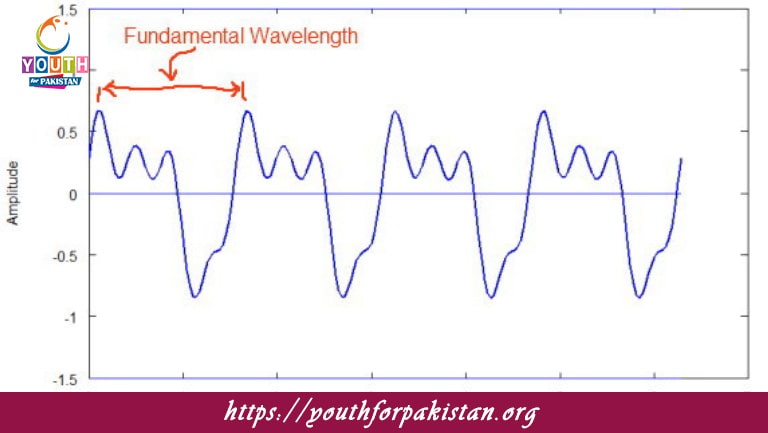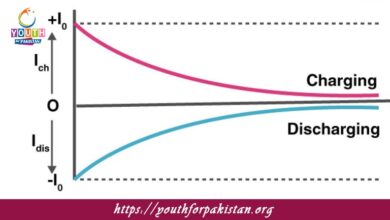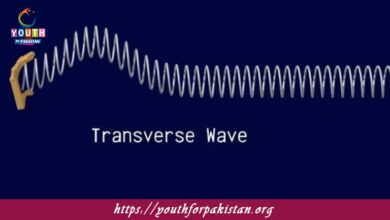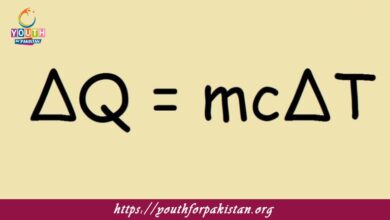Periodic Waves MDCAT Quiz with Answers

Periodic Waves MDCAT Quiz is a kind of wave that repeats itself over time at regular intervals. In other words, a periodic wave oscillates between two or more points in a repeating, cyclical pattern. These waves are fundamental in wave mechanics and can be either transverse or longitudinal, depending on the direction of particle motion relative to the wave propagation. The concept of periodic waves is very important for MDCAT students because it helps them solve many problems related to wave behavior, energy transfer, and wave characteristics.
Characteristics of Periodic Waves
Repetition: The defining feature of periodic waves is that they repeat at regular time intervals. The wave exhibits a constant period and frequency, meaning the time it takes for the wave to complete one cycle (period) and the number of cycles per second (frequency) remain unchanged.
Amplitude: The amplitude of a periodic wave is the maximum displacement of a particle from its equilibrium position during the oscillation. Larger amplitudes correspond to waves with more energy. In transverse waves, amplitude is measured from the midpoint to the crest or trough, while in longitudinal waves, it is associated with the degree of compression or rarefaction.
Wave Interference: Periodic waves are very important in the understanding of how waves interact with each other. When two waves meet, they can combine constructively (amplitudes add) or destructively (amplitudes cancel), a phenomenon known as interference.
Resonance: When the periodic wave is equal to the system’s natural frequency, then the system oscillates at a higher amplitude. Many musical instruments, bridges, and even mechanical systems work on this theory.
MDCAT Quiz: Periodic Waves Questions
In the MDCAT Quiz, students can be asked to identify the characteristics of periodic waves, such as amplitude, wavelength, frequency, and speed. Questions could also be about the solving of problems relating to wave motion, like finding the speed or frequency of a wave, or describing the behaviors of waves in different media. Similarly, questions on wave interference or resonance of periodic waves may appear.
- Test Name: Periodic Waves MDCAT Quiz
- Type: Quiz Test
- Total Questions: 30
- Total Marks: 30
- Time: 30 minutes
Note: Answer of the questions will change randomly each time you start the test, once you are finished, click the View Results button.
Free Flashcards for Periodic Waves
Free flashcards on periodic waves can be a very good study tool for MDCAT students. The flashcards can include definitions, diagrams showing the properties of periodic waves, and sample problems on frequency, wavelength, and speed. If these flashcards are reviewed on a daily basis, students will be able to understand the concept of periodic waves in great detail and will be able to solve problems for the MDCAT Quiz.

How does the frequency of a periodic wave relate to the time period?
Frequency is the reciprocal of the time period

What is the relationship between the amplitude and the energy of a periodic wave?
Energy is proportional to the square of the amplitude

What happens to the energy of a periodic wave when the amplitude is doubled?
The energy increases by a factor of four

In a periodic wave, how are the particles of the medium displaced?
The particles vibrate in a regular, repeating pattern

How does the frequency of a periodic wave affect the speed of the wave?
The speed is independent of the frequency

What does the amplitude of a periodic wave represent?
The maximum displacement from the equilibrium position

What is the relationship between frequency and wavelength in a periodic wave?
They are inversely proportional

If the frequency of a periodic wave is doubled, what happens to the wavelength?
The wavelength is halved

What happens to the frequency of a periodic wave if the time period is increased?
The frequency decreases

How is the wave speed related to frequency and wavelength in a periodic wave?
Wave speed = Frequency × Wavelength

What happens when two periodic waves of the same frequency and amplitude meet in phase?
They undergo constructive interference

What is the phase difference between two consecutive particles in a periodic wave separated by half a wavelength?
180° or π radians
Experience the real exam environment with our expertly designed collection of over 25,000 MCQs MDCAT Mock Tests.





